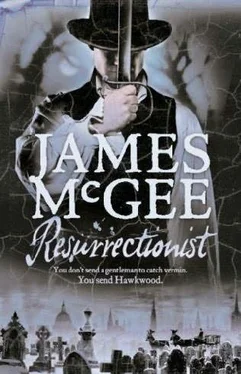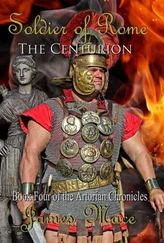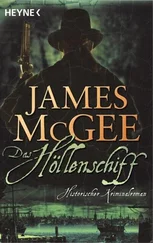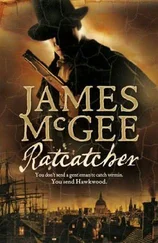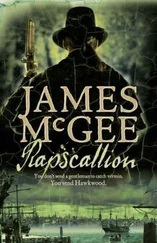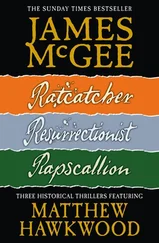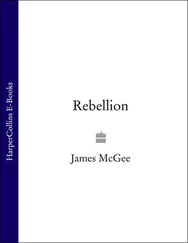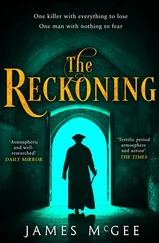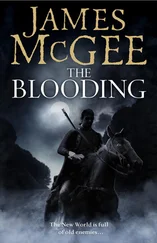James McGee - Resurrectionist
Здесь есть возможность читать онлайн «James McGee - Resurrectionist» — ознакомительный отрывок электронной книги совершенно бесплатно, а после прочтения отрывка купить полную версию. В некоторых случаях можно слушать аудио, скачать через торрент в формате fb2 и присутствует краткое содержание. Жанр: Исторический детектив, на английском языке. Описание произведения, (предисловие) а так же отзывы посетителей доступны на портале библиотеки ЛибКат.
- Название:Resurrectionist
- Автор:
- Жанр:
- Год:неизвестен
- ISBN:нет данных
- Рейтинг книги:4 / 5. Голосов: 1
-
Избранное:Добавить в избранное
- Отзывы:
-
Ваша оценка:
- 80
- 1
- 2
- 3
- 4
- 5
Resurrectionist: краткое содержание, описание и аннотация
Предлагаем к чтению аннотацию, описание, краткое содержание или предисловие (зависит от того, что написал сам автор книги «Resurrectionist»). Если вы не нашли необходимую информацию о книге — напишите в комментариях, мы постараемся отыскать её.
Resurrectionist — читать онлайн ознакомительный отрывок
Ниже представлен текст книги, разбитый по страницам. Система сохранения места последней прочитанной страницы, позволяет с удобством читать онлайн бесплатно книгу «Resurrectionist», без необходимости каждый раз заново искать на чём Вы остановились. Поставьте закладку, и сможете в любой момент перейти на страницу, на которой закончили чтение.
Интервал:
Закладка:
“Van Rymsdyk,” Locke said behind him. “A Dutch artist; dead now, but much in demand by anatomists for his expertise in capturing the human form. The Hunters, Cheselden, they all made use of his services.”
The names still meant nothing, although there was no doubting the skill of the illustrator. The detail was astonishing.
“Convincing, aren’t they?” the apothecary murmured. “Too vivid, some might say. Yet without van Rymsdyk and the rest, medical science would be becalmed, like a ship awaiting a breeze. If I may continue with the analogy, surgeons are the navigators of our times. Like Magellan and Columbus before them, they search for new worlds. To navigate, you require a map. If no map is available, you create your own, so that others may follow in your wake.” Locke spread his hands. “These are surgeon’s maps, Officer Hawkwood. Anatomical charts of the human body. The more accurate the chart, the less danger there is of running aground.”
The apothecary blinked owlishly and fell silent, as if suddenly overcome by his own loquacity.
Hawkwood’s attention was drawn to the far corner of the cell, the part of the room in deepest shadow. He moved closer. The drawing was similar to the rest: a standing female figure, explicitly nude. The figure’s right hand was raised to conceal its right breast. The left hand was held lower, covering the groin area. The belly was shown cut open, revealing the organs beneath. Each organ was marked with a letter. The figure was framed by four smaller insets, each differentiated by a Roman numeral, showing the progressive, layered dissection of the stomach wall.
The apothecary followed his gaze. “Ah, yes, a Valverde engraving, one of his studies on pregnancy.” Locke stared at the wall, lost in thought.
Hawkwood had seen enough. He wanted to be out of there, away from the disturbing images and the darkness and the dripping stonework and the smell of death. He wanted to be where there was sunlight and fresh air, not in this… slaughterhouse.
He turned and led the way back into the sleeping area and the waiting Leech. “Keep the room locked. No one enters. There’ll be someone along to collect the body for examination by the coroner’s appointed surgeon.”
Who was about to have a very busy morning, Hawkwood reflected wryly, what with this and the dead man in the graveyard.
He turned to the apothecary. “Take me to Grubb.”
Locke nodded and ushered him into the corridor, plainly relieved at being able to leave the cell and its grisly contents behind.
The elderly attendant was in his room, huddled in a chair, a blanket covering his legs. A bowl of thin broth and a lump of soggy-looking bread sat on a table beside him. His face was pale and drawn and he gazed apprehensively at his visitor as Locke made the introductions.
The attendant’s hands shook as, with a faltering voice, he relived the events of the previous night, confirming that he’d noticed nothing unusual when he’d gone to collect the parson.
“You didn’t see his face?” Hawkwood asked.
Grubb shook his head. “Not properly.’ E was already wearin’ ’is ’at and scarf when I let ’im out of the room. I did take a quick gander when I was walkin’ ’im to the door, but ’e caught me at it and pulled ’is scarf up. Mind you, it were a bitter night.”
“Did he say anything?”
Grubb thought back. His chest rose and fell. The breath wheezed in his throat. “’E said goodbye to the colonel, when I let ’im out of the room.”
“But the colonel didn’t reply,” Hawkwood said. “Did he?”
Grubb shook his head. “I thought I ’eard them talkin’ before I unlocked the door, but I couldn’t make out the words.”
Hawkwood heard Locke gasp and threw the apothecary a warning look. Hawkwood knew it had been part of the colonel’s plan, talking with himself to trick whoever was outside the door into believing that both occupants of the room were alive. Similarly, by posing as the priest and halting on the threshold to bid his unseen host good-night, he had fooled Grubb into thinking the colonel was acknowledging the farewell, perhaps with a nod or a wave of his hand.
“Did he say anything else?”
“Said good-night when I let ’im out the front door. I offered to see ’im to the main gates, but he said he was all right on his own.”
There was no doubting the man’s nerve, Hawkwood thought. It had been a simple ruse. It had relied on one elderly keeper, probably with fading eyesight and encroaching deafness and a time of night when the corridor would be in semidarkness, lit only by dull candlelight. As an escape plan it had been astonishingly well executed. The rain had been a bonus.
Hawkwood could see that Grubb was tiring. There was a vacant look in the attendant’s eyes and his breathing was becoming harsh and uneven. He nodded to Locke, indicating it was time to go. The apothecary bent and drew the blanket over the attendant’s waist.
“We need to talk, Doctor,” Hawkwood said, when they were back in the corridor. “I think it’s time you told me all about Colonel Hyde.”
4
The apothecary took a deep breath, as if to compose his thoughts. “Truthfully, have you ever seen anything like this?”
“No,” Hawkwood admitted. No one had.
He’d investigated killings, of course, seen scores of murder victims, usually as a result of drunken brawls, burglaries that had gone wrong or family feuds that had gotten out of hand, even crimes of passion, but this was different, a new experience. It wasn’t the manner of death but the mutilation of the victim that set this murder apart. The excising of the priest’s face had not been the result of a blood-crazed, frenzied attack. The skin had been removed with great precision. Peeled away like a mask, the apothecary had said. And so it had been; deliberately and specifically removed for the purpose of aiding the colonel’s exit from the hospital. Which indicated the escape had not been a spontaneous act but the culmination of a carefully thought-out strategy. And that, Hawkwood knew, opened up a whole slew of possibilities, not one of them palatable.
“Why was the colonel here?” Hawkwood asked.
They were back in the apothecary’s office. Locke was seated at his desk. Hawkwood was standing by the window. Thankfully, there were no bars and no illustrations of any description on the walls. Even the view over the well-trodden ground of Moor Fields was a consolation after the claustrophobia of the colonel’s cell.
A shadow moved across the apothecary’s face. “Warriors survive the battlefield bearing many scars. Not all are caused by damage to the flesh. There are other wounds that run much deeper. The effect of war on the human mind is a fascinating concept and one that has occupied me for some time. It’s not an interest shared by the majority of my fellow physicians, despite the increasing number of poor souls committed to hospital asylums by the Transport Office and the Navy’s Sick and Wounded Office each year.”
The apothecary paused, then said, “Am I right in thinking you’ve knowledge of such matters? It occurred to me when we met that you have the look about you; that scar beneath your eye, for example, and the distinct mark of an ingrained powder burn above your right cheek. You were a military man; the army, perhaps? Am I right?”
Hawkwood stared at his inquisitor. The burn mark was a legacy most musketeers and riflemen carried with them; a rite of passage, caused by flecks of burning powder blowing back into the face when their weapon was discharged.
“I was a soldier,” Hawkwood said.
“May I ask what regiment?”
“The 95th.”
“The Rifles! I’ve heard great stories of their exploits.” Locke put his head on one side and nodded thoughtfully. “Though you were not of the rank and file, I suspect. You were an officer? You commanded men in battle?”
Читать дальшеИнтервал:
Закладка:
Похожие книги на «Resurrectionist»
Представляем Вашему вниманию похожие книги на «Resurrectionist» списком для выбора. Мы отобрали схожую по названию и смыслу литературу в надежде предоставить читателям больше вариантов отыскать новые, интересные, ещё непрочитанные произведения.
Обсуждение, отзывы о книге «Resurrectionist» и просто собственные мнения читателей. Оставьте ваши комментарии, напишите, что Вы думаете о произведении, его смысле или главных героях. Укажите что конкретно понравилось, а что нет, и почему Вы так считаете.
